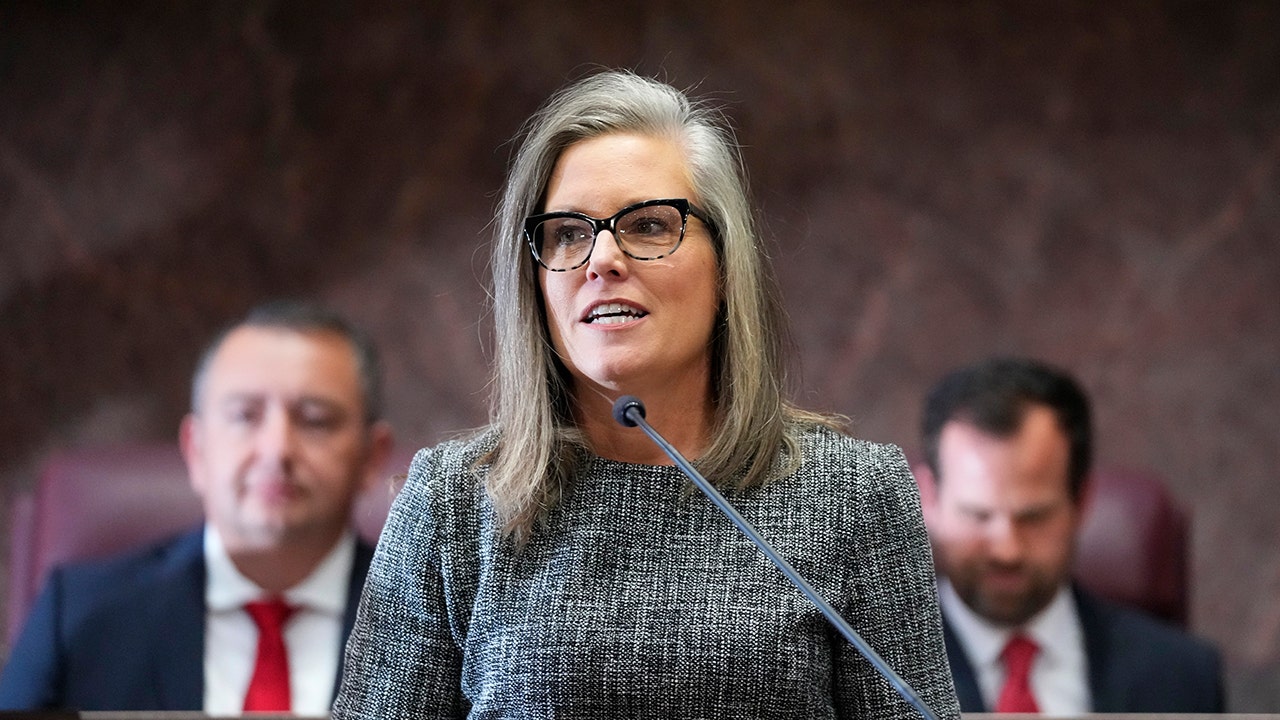In full disclosure, I have followed William Arkin’s work for many years and he has been on my radio show twice, although not recently. But, he did an investigation on domestic violence tapping information from several agencies especially the FBI….MAGA supporters are the hunted.
Perhaps after you read through this summary, you will have some of the same questions I do which include:
But read on…your thoughts and comments are invited.
The federal government believes that the threat of violence and major civil disturbances around the 2024 U.S. presidential election is so great that it has quietly created a new category of extremists that it seeks to track and counter: Donald Trump‘s army of MAGA followers.
The challenge for the Federal Bureau of Investigation, the primary federal agency charged with law enforcement, is to pursue and prevent what it calls domestic terrorism without direct reference to political parties or affiliations—even though the vast majority of its current “anti-government” investigations are of Trump supporters, according to classified data obtained by Newsweek.
“The FBI is in an almost impossible position,” says a current FBI official, who requested anonymity to discuss highly sensitive internal matters. The official said that the FBI is intent on stopping domestic terrorism and any repeat of the January 6, 2021, attack on the Capitol. But the Bureau must also preserve the Constitutional right of all Americans to campaign, speak freely and protest the government. By focusing on former president Trump and his MAGA (Make America Great Again) supporters, the official said, the Bureau runs the risk of provoking the very anti-government activists that the terrorism agencies hope to counter.
“Especially at a time when the White House is facing Congressional Republican opposition claiming that the Biden administration has ‘weaponized’ the Bureau against the right wing, it has to tread very carefully,” says the official.
Newsweek spoke to over a dozen current or former government officials who specialize in terrorism in a three-month investigation to understand the current domestic-security landscape and to evaluate what President Joe Biden‘s administration is doing about what it calls domestic terrorism. Most requested anonymity because they were not authorized to talk publicly, were reluctant to stray into partisan politics or feared the repercussions of speaking frankly.
Newsweek has also reviewed secret FBI and Department of Homeland Security data that track incidents, threats, investigations and cases to try to build a better picture. While experts agree that the current partisan environment is charged and uniquely dangerous (with the threat not only of violence but, in the most extreme scenarios, possibly civil war), many also question whether “terrorism” is the most effective way to describe the problem, or that the methods of counterterrorism developed over the past decade in response to Al-Qaeda and other Islamist groups constitute the most fruitful way to craft domestic solutions.
“The current political environment is not something that the FBI is necessarily responsible for, nor should it be,” says Brian Michael Jenkins, one of the world’s leading terrorism experts and senior adviser to the president of the RAND Corporation.
In a statement to Newsweek, the FBI said: “The threat posed by domestic violent extremists is persistent, evolving, and deadly. The FBI’s goal is to detect and stop terrorist attacks, and our focus is on potential criminal violations, violence and threats of violence. Anti-government or anti-authority violent extremism is one category of domestic terrorism, as well as one of the FBI’s top threat priorities.” The FBI further said, “We are committed to protecting the safety and constitutional rights of all Americans and will never open an investigation based solely on First Amendment protected activity, including a person’s political beliefs or affiliations.”
The White House declined to comment. The Trump campaign was given an opportunity to comment but did not do so.
What the FBI Data Shows
From the president down, the Biden administration has presented Trump and MAGA as an existential threat to American democracy and talked up the risk of domestic terrorism and violence associated with the 2024 election campaign.
“Donald Trump and MAGA Republicans are a threat to the very soul of this country,” President Biden tweeted last September, the first time that he explicitly singled out the former president. “MAGA Republicans aim to question not only the legitimacy of past elections but elections being held now and into the future,” Biden said.
Biden’s Homeland Security Advisor Liz Sherwood-Randall said: “The use of violence to pursue political ends is a profound threat to our public safety and national security…it is a threat to our national identity, our values, our norms, our rule of law—our democracy.”
For Attorney General Merrick Garland: “Attacks by domestic terrorists are attacks on all of us collectively, aimed at rending the fabric of our democratic society and driving us apart.”
Though the FBI’s data shows a dip in the number of investigations since the slew of January 6 cases ended, FBI Director Christopher Wray still says that the breach of the Capitol building was “not an isolated event” and the threat is “not going away anytime soon.” In a joint report to Congress this June, the Bureau and the Department of Homeland Security say that “Threats from…DVEs [domestic violent extremists] have increased in the last two years, and any further increases in threats likely will correspond to potential flashpoints, such as high-profile elections and campaigns or contentious current events.”
The FBI and DHS report concludes: “Sociopolitical developments—such as narratives of fraud in the recent general election, the emboldening impact of the violent breach of the U.S. Capitol, conditions related to the COVID-19 pandemic, and conspiracy theories promoting violence—will almost certainly spur some domestic terrorists to try to engage in violence.”
The threats listed in that paragraph are all clearly associated with America’s right and in particular with Trump’s MAGA supporters. Right after January 6, the FBI co-authored a restricted report (“Domestic Violent Extremists Emboldened in Aftermath of Capitol Breach, Elevated Domestic Terrorism Threat of Violence Likely Amid Political Transitions and Beyond”) in which it shifted the definition of AGAAVE (“anti-government, anti-authority violent extremism”) from “furtherance of ideological agendas” to “furtherance of political and/or social agendas.” For the first time, such groups could be so labeled because of their politics.
It was a subtle change, little noticed, but a gigantic departure for the Bureau. Trump and his army of supporters were acknowledged as a distinct category of domestic violent extremists, even as the FBI was saying publicly that political views were never part of its criteria to investigate or prevent domestic terrorism. Where the FBI sees threats is also plain from the way it categorizes them—a system which on the surface is designed to appear nonpartisan. This shifted subtly days after the events of January 6 when it comes to what the Bureau calls AGAAVE.
“We cannot and do not investigate ideology,” a senior FBI official reassured the press after January 6. “We focus on individuals who commit or intend to commit violence or criminal activity that constitutes a federal crime or poses a threat to national security.”
But the FBI went further in October 2022 when it created a new subcategory—”AGAAVE-Other”—of those who were a threat but do not fit into its anarchist, militia or Sovereign Citizen groups. Introduced without any announcement, and reported here for the first time, the new classification is officially defined as “domestic violent extremists who cite anti-government or anti-authority motivations for violence or criminal activity not otherwise defined, such as individuals motivated by a desire to commit violence against those with a real or perceived association with a specific political party or faction of a specific political party.”
Though Trump and MAGA are never mentioned in the official description of AGAAVE-Other, government insiders acknowledge that it applies to political violence ascribed to the former president’s supporters.
“What other name could we use?” asks one FBI officer who spoke with Newsweek, and who defends what he says is merely a record-keeping change in response to Congressional pressure to track things better. “Obviously if Democratic Party supporters resort to violence, it [AGAAVE-Other] would apply to them as well. It doesn’t matter that there is a low likelihood of that. So yes, in practical terms, it refers to MAGA, though the carefully constructed language is wholly nonpartisan.”
In its statement to Newsweek, the FBI said that the AGAAVE threat “includes anarchist violent extremists, militia violent extremists, sovereign citizen violent extremists, and other violent extremists—some of whom are motivated by a desire to harm those with a real or perceived association with a political party or faction.”
Another senior intelligence official who requested anonymity told Newsweek, “We’ve crossed the Rubicon.” In emailed responses to questions, he said, “Trump’s army constitutes the greatest threat of violence domestically…politically…that’s the reality and the problem set. That’s what the FBI, as a law enforcement agency, has to deal with. But whether Trump and his supporters are a threat to national security, to the country, whether they represent a threat of civil war? That’s a trickier question. And that’s for the country to deal with, not the FBI.”
The revelations that some Trump supporters are being specifically targeted by the FBI fits with accusations from among them that the Bureau has them in its sights and is the political tool of a repressive deep state in Washington, D.C., bent on preserving the hold of the political establishment at the cost of democracy.
Such views are not only from the furthest fringe. Some of Trump’s Republican allies in Congress have called for the FBI to be defunded over such accusations and the prosecution of Trump supporters over the January 6 attack. The fight over the FBI is in itself helping to stoke the political temperature ahead of the 2024 election.
“For perhaps the first time in our history, the FBI’s counterterrorism operational tempo remains high for international terrorism, state-sponsored terrorism and domestic terrorism, simultaneously,” FBI director Wray declared at Texas A&M University this summer.
A senior intelligence official who works at the Office of the Director of National Intelligence says it is hard to digest all the evidence. “When you are used to hearing that the sky is falling every day, when that’s the nature of the cable news and Twitter worlds we live where everything is overstated, there’s a lot of room for doubt,” he says.
“But I say this as a citizen as much as a government analyst,” the senior official says. “We are in a unique moment and the numbers are daunting.”
The FBI official says that those who are charged with upholding the law see numbers that are worrying but that there is also a struggle to characterize the specific threat to America—and whether it really should be called terrorism—as well as the proper response.
“This is not media hype. But it’s also not easily quantifiable,” the FBI official says. “Are we talking just a few thousand Proud Boy types or are we talking 30 percent of the country that are core Trump voters? Are we talking extremists bent on political violence or just a lot of disgruntled and frustrated citizens? I don’t know the answer, and I can assure you the answer isn’t in any secret intelligence that the government possesses.”
The FBI and the other intelligence agencies responsible for domestic matters track the number of terrorist-related disruptions, arrests and investigations, based on its caseloads and its various characterizations. According to the FBI, the number of domestic terrorism-related open cases grew by 357 percent from 1,981 in fiscal year 2013 to 9,049 in fiscal year 2021, a number that has been widely quoted in the media as evidence of a widespread domestic terror threat. The FBI also says the number of FBI domestic violent extremism and domestic terrorism investigations has more than doubled since the spring of 2020—to approximately 2,700 investigations at the end of fiscal year 2022, another marker that’s been widely quoted.
Though Trump and MAGA are never mentioned in the official description of AGAAVE-Other, government insiders acknowledge that it applies to political violence ascribed to the former president’s supporters.
“What other name could we use?” asks one FBI officer who spoke with Newsweek, and who defends what he says is merely a record-keeping change in response to Congressional pressure to track things better. “Obviously if Democratic Party supporters resort to violence, it [AGAAVE-Other] would apply to them as well. It doesn’t matter that there is a low likelihood of that. So yes, in practical terms, it refers to MAGA, though the carefully constructed language is wholly nonpartisan.”
In its statement to Newsweek, the FBI said that the AGAAVE threat “includes anarchist violent extremists, militia violent extremists, sovereign citizen violent extremists, and other violent extremists—some of whom are motivated by a desire to harm those with a real or perceived association with a political party or faction.
This is hardly the end of the article…so for consumption of the wh0le piece, click here.




